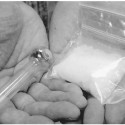What Factors Help People to Stay in Treatment?
When your addicted to drugs or alcohol the entire process of treatment is a difficult and challenging process that takes time and effort. Various changes must be made emotionally, physically, personally and financially to assure the overall successful recovery of an addict and all these changes can be difficult to deal with psychologically not to mention they may be difficult to actually implement no matter how committed one may be to recovery. Various factors come into play when an addict decides to seek help and even more so when it comes time to stay in treatment. After all, it’s so much easier just to run away from our problems—but running away doesn’t do any good.
While it may be difficult for an individual to opt to stay in treatment there are a number of factors that can help to facilitate long term acceptance of the treatment. Here’s a look at some of the most common reasons why addicts stay in treatment despite the challenges that they face in this situation:
Involvement of the Family
For some, the involvement that their family members and loved ones have in treatment make all the difference in whether or not they stay in treatment. A strong support system at home has been proven to help individuals to remain drug free and also to help them recover when they are addicted. Many treatment centers offer programs for families to get involved with the treatment of their loved ones such as educational programs, counseling for families and various types of therapy to increase family involvement during treatment. A love for family is often the motivation that provokes recovering addicts to remain in treatment despite the challenges that they face each day.
Counselors and Therapists
The counselors and therapists in treatment centers are often the first person that a recovering addict is able to feel a connection with and build a trusting relationship with. For some recovering addicts in treatment, the counselors are the primary reason that they remain in treatment. Counselors encourage recovering addicts to push forward, work through their problems no matter how challenging and they help addicts to see the light at the end of the recovery tunnel. Many attribute their decision to remain in treatment to the counselor that provided them with treatment and therapy throughout the program.
Types of Treatment
Various types of treatment are offered at treatment centers and for some recovering addicts, the decision to stay in treatment is attributed to the type of treatment that they are receiving. For those who choose to leave treatment, sometimes the decision to leave can be attributed to the treatment not being an effective approach for them. It’s ok to try more than one type of treatment when trying to find the right fit and many addicts find themselves trying many different types of treatment before finally making the decision to stay in treatment and benefit from its effects.
Outside Forces
Finally, some addicts remain in treatment simply because they are pressured to do so by outside forces. Some of the most common outside forces that will pressure an addict to stay in treatment include the criminal justice system, their employer, parents or family. Most often it’s the criminal justice system that is the pressuring force that results in a recovering addict choosing to stay in treatment rather than go to jail.


